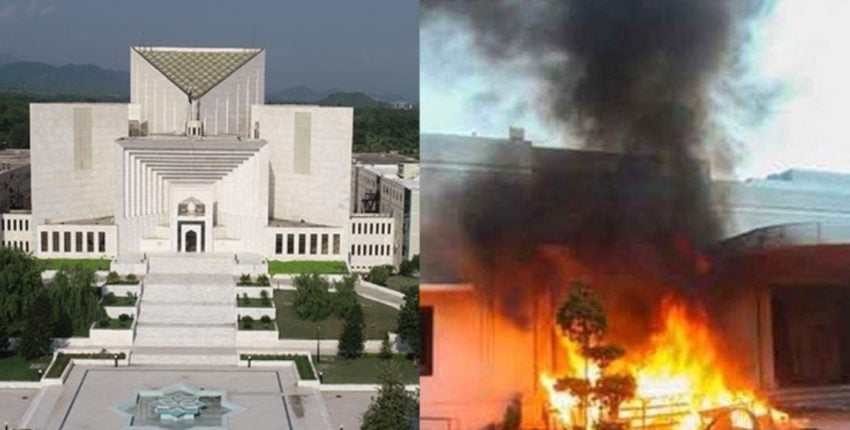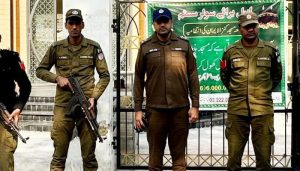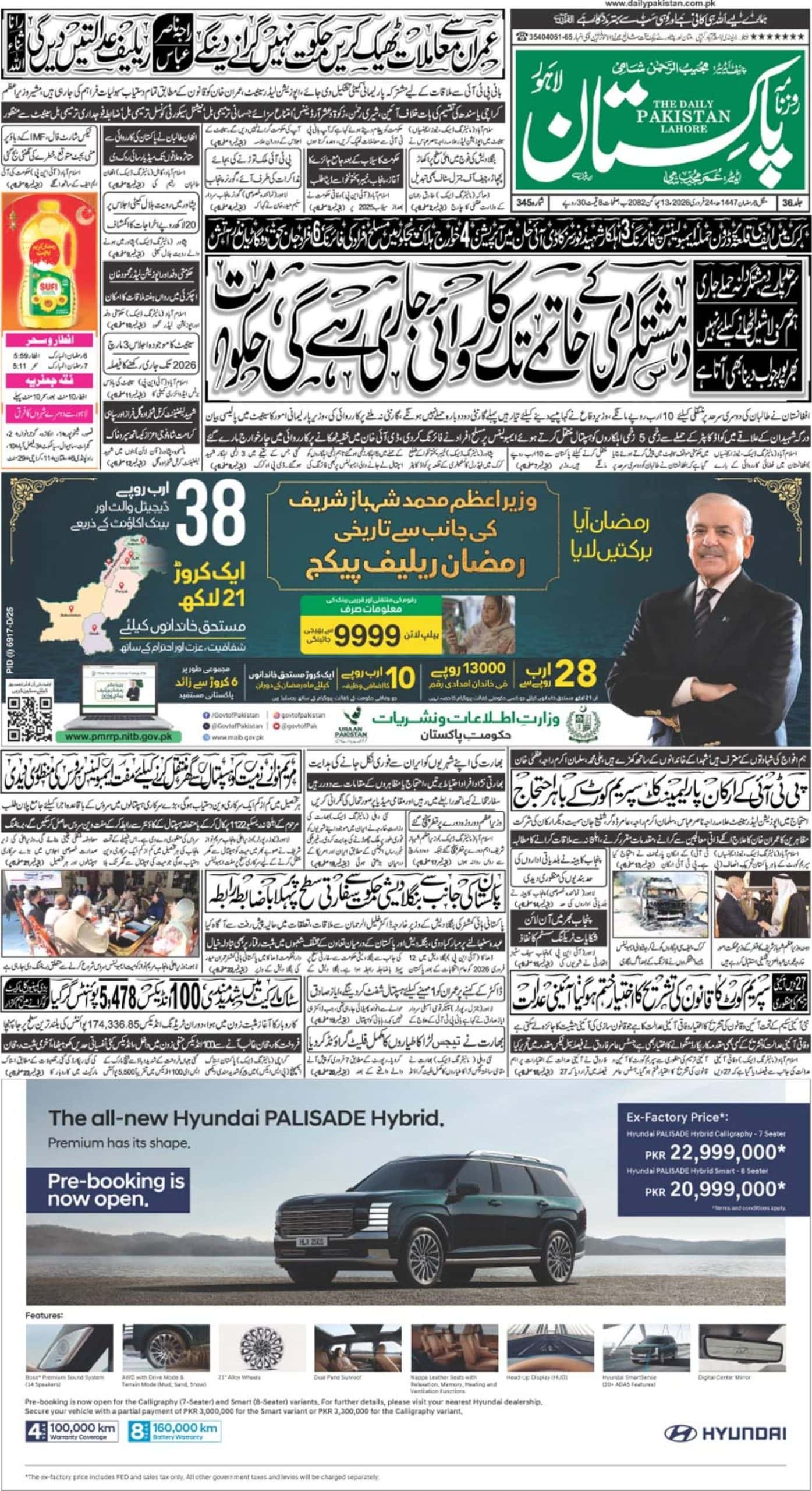RAWALPINDI – Army Officer’s accountability for Jinnah House security breach during May 9 attacks comes under Supreme Court’s scrutiny during a recent hearing.
A member of the constitutional bench Justice Hasan Azhar Rizvi raised concerns over the accountability of army officers involved in the security breach during the May 9 attack on Jinnah House (Lahore Corps Commander), questioning whether any army officer had been tried in a military court for the security lapse that occurred during the attack.
The beach led by Justice Aminuddin Khan started hearings on appeals against the previous ruling of apex court, which annulled the military trial of civilians involved in the May 9 violence.
In last hearing, another bench member Justice Hilali questioned whether Pakistan Army Act (PAA) of 1952 outlined penalties for officers who suspend the Constitution, raising concerns regarding Article 6 of the Constitution, which addresses high treason.
Khawaja Haris, who represented government, referenced Liaquat Hussain case, which dealt with the trial of civilians for civil crimes in military courts. Justice Mandokhail emphasized the need to define under what circumstances civilians could be tried in such courts.
Justice Mandokhail raised the issue of whether an attack on a military convoy or a dispute at a checkpoint could also be classified as breaches of military discipline under the Army Act. Another judge reminded defence lawyer that FB Ali case took place during martial law, under the administration of Zulfikar Ali Bhutto, and stemmed from attempts to remove him. He stressed that martial law had ended with the establishment of the Constitution.
The hearings continue as the bench examines the complex legal issues surrounding military trials of civilians and the accountability of military personnel in such incidents.
Last year, Pakistan Army completed investigations into May 9 violence, leading to the dismissal of three senior officers, including Lt. Gen, for failing to secure Jinnah House during protests. ISPR Director General Ahmed Sharif that military courts are handling the trials of those involved, with 102 individuals facing charges.
May 9 is said to be one of darkest hours in country’s history when protests resulted in destruction of Jinnah House and valuable national heritage, including Quaid-e-Azam Muhammad Ali Jinnah’s personal belongings.
More to follow…













